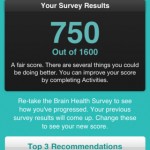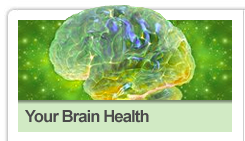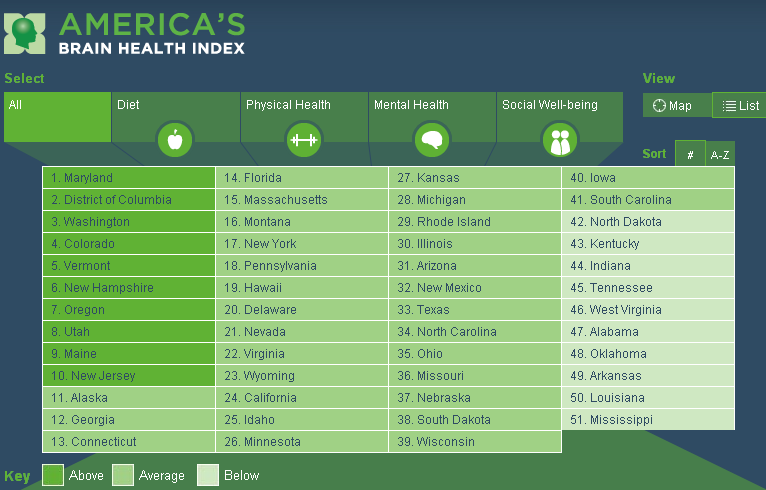Real Learning from the Very Best Online for Free!
 Higher education is going open sourced and online. Some of the very best universities in the US, for example the world-renown Massachusetts Institute of Technology (MIT) and Stanford University, offer course materials online for free. You can even take an online version of an on campus course. You participate in the actual class, from a distance for free. For example, Stanford University has opened up some courses on technology entrepreneurship, clinical anatomy, computer science and 10 other areas.
Higher education is going open sourced and online. Some of the very best universities in the US, for example the world-renown Massachusetts Institute of Technology (MIT) and Stanford University, offer course materials online for free. You can even take an online version of an on campus course. You participate in the actual class, from a distance for free. For example, Stanford University has opened up some courses on technology entrepreneurship, clinical anatomy, computer science and 10 other areas.
While taking these course does not earn college credit, MIT announced MITx starting in 2012 and plans to offer certifications for mastery in specific areas. Certifications involve a “modest fee”. This is an exciting development especially since the program is based on the very latest thinking in using technology to learn effectively online.
MITx is a new move in the school’s 10-year effort to open their courses to the world:
“Offering interactive MIT courses online to learners around the world builds upon MIT’s OpenCourseWare, a free online publication of nearly all of MIT’s undergraduate and graduate course materials. Now in its 10th year, OpenCourseWare includes nearly 2,100 MIT courses and has been used by more than 100 million people.
Why mentioned this on the Next Brain Blog? While taking classes does not sound like a revolutionary new way of building your brain function or improving cognitive performance, the combination of the quality of the course, use of technology in learning and the cost, is revolutionary.
Interested to hear from readers that have taken free full-participation online courses from top US universities.
Categories: Training Tags:
Gift Giving Idea: Consider Fat Brain Toys
 Fat Brain offers an amazing collection of high quality toys and entertainments designed to stimulate the brain and develop cognition. You can shop for toys by gender and ages ranging from 1 year old to 18 years old. From magnetic poetry and brain food (colorful goo) to the best selling stomp rockets and reflections (image shown), a truly unique game that combines mirrors, visual illusion and competition.
Fat Brain offers an amazing collection of high quality toys and entertainments designed to stimulate the brain and develop cognition. You can shop for toys by gender and ages ranging from 1 year old to 18 years old. From magnetic poetry and brain food (colorful goo) to the best selling stomp rockets and reflections (image shown), a truly unique game that combines mirrors, visual illusion and competition.
Just the kind of toys that should be on the holiday shopping list of Next Brain Blog readers. Interested to hear from anyone that has purchased or plays with Fat Brain Toys. How are they making you smarter?
Categories: Child, Cognitive Development, College Student, Mental Focus, Other, Perception, Problem Solving Tags: toys
Can Singing Significantly Improve Brain Function?
 The answer is yes according to the makers of SingFit an App for the iPhone and iPad that is due out in just a couple of weeks. Grounded in well-established principles from music therapy they claim:
The answer is yes according to the makers of SingFit an App for the iPhone and iPad that is due out in just a couple of weeks. Grounded in well-established principles from music therapy they claim:
“Scientific studies have shown that singing in general positively impacts the levels of hormones responsible for regulating mood, blood pressure and social bonding, including serotonin, cortisol and oxytocin. Furthermore, singing has been proven to help increase immune system strength and respiratory function while decreasing stress, pain and agitation. Imaging studies also reveal that singing can promote cross hemisphere brain activity, which can increase mental neuroplasticity and improve cognitive functioning.”
The app is free but they hope to sell you a $13 a month subscription for more content. I’d like to hear from readers that use this app or other forms of music therapy to build brain function and improve cognitive performance.
Categories: Ancient Ways, Memory and Learning, Music and Audio, Problem Solving, Sleep Tags:
Use the Latest Science to Maintain Brain Health
 Do you have an iPhone or iPad and want to lower your risk of Alzheimer’s disease or other forms of dementia? Check out the the free BrainyApp. It let’s you apply the latest neuroscience to assess your risk and develop recommendations for keeping your brain and heart healthy.
Do you have an iPhone or iPad and want to lower your risk of Alzheimer’s disease or other forms of dementia? Check out the the free BrainyApp. It let’s you apply the latest neuroscience to assess your risk and develop recommendations for keeping your brain and heart healthy.
Not surprisingly the risk factors that the app uses are related to lifestyle and include diet, smoking, blood pressure, weight exercises and lack of mental activity. And the factors work together. For example, one study found that high salt diet combined with inactivity in older adults contributed to cognitive decline.
Interested to hear from readers that have used this app or similar apps to gain insight into how lifestyle choices impact brain health.
Categories: Cognitive Decline, Lifestyle, Older Adult, Software Tags:
Will Playing Video Games Boost Kid’s Creativity?
 The answer is yes according to recent research at Michigan State University. They studied 500 12-year-olds and found that playing video games increases creativity when it comes to drawing pictures and writing stories. The finding is robust:
The answer is yes according to recent research at Michigan State University. They studied 500 12-year-olds and found that playing video games increases creativity when it comes to drawing pictures and writing stories. The finding is robust:
“… regardless of gender, race or type of game played by the students, the study found a relation between video game playing and greater creativity.”
They also found no increase in creativity through the use of computers, the Internet or smart phones.
Interested to hear from readers that include video game playing in an effort to develop their children’s brain function and cognitive performance.
Categories: Child, Problem Solving, Software Tags: creativity, games
Can the ABCs Unblock Your Mental Performance?
 Cognitive Behavioral Therapy (CBT) has seen a lot of success over the last 25 years. The ideas is that faulty assumptions or patterns of thinking can seriously impair how we learn, make decisions, socialize or otherwise perform cognitive functions. In CBT the therapist works with the patient to surface the faulty pattern of thinking and change it thereby relieving the problems. The tools of CBT have been incorporated in other disciplines such as leadership, design and self improvement.
Cognitive Behavioral Therapy (CBT) has seen a lot of success over the last 25 years. The ideas is that faulty assumptions or patterns of thinking can seriously impair how we learn, make decisions, socialize or otherwise perform cognitive functions. In CBT the therapist works with the patient to surface the faulty pattern of thinking and change it thereby relieving the problems. The tools of CBT have been incorporated in other disciplines such as leadership, design and self improvement.
As a self-improvement approach the individual attempts to surface and alter faulty assumptions pretty much on their own. While the success of the self-improvement approach has not been scientific demonstrated it does seem to have staying power. More and more books, programs and training events are aimed at how individuals can use CBT to manage their owning thinking and improve cognitive performance. Such programs are typically focused on learning:
- The ABC formula (see diagram) or the connection between activating events, the beliefs they generate and the emotional consequent or feeling we have
- How to analyze self talk especially those messages we repeat
- Ways to identify patterns of dysfunctional thinking (e.g. over generalizing or catastrophizing)
- Techniques for modifying the patterns (e.g. confronting and flooding).
For example you can use this approach to identify and mitigate the negative self-talk that stops you from taking action, making a difficult decision or giving a presentation. To explore CBT further you can work through a short online presentation developed by James Porter or check out CBT for Dummies.
Interested to hear from readers that have used CBT by themselves or with a therapist to improve cognitive performance.
Source: ABC Diagram
Categories: Books, Manage Emotions, Mental Focus, Training Tags:
Cognitive Training uses Music to Boost Verbal IQ
Music is one of the best ways to charge up your cognitive performance in both the short and long term. What differentiates music from noise or other sounds? It is exactly its ability to authentically move our hearts and extend our minds. Music is brain boosting technology by definition. That’s why in the Next Brain blog we are always on the look out for applications that use music to improve brain function or enhance cognitive performance.
 For example, a new study by The Royal Conservatory of Music in Canada, York University and others showed that students 4-6 years old experience a measurable increase in IQ after just 20 days of music-based cognitive training. The improvement showed up in before and after testing and EEG brain imaging.
For example, a new study by The Royal Conservatory of Music in Canada, York University and others showed that students 4-6 years old experience a measurable increase in IQ after just 20 days of music-based cognitive training. The improvement showed up in before and after testing and EEG brain imaging.
The music-based cognitive training included interactive cartoons that delivered lessons twice each day for one hour. A picture of the cartoon is included in this post. To see more watch a video.
While only one study, the results are significant. An impressive 90% of the 48 students in the study show improvement in verbal intelligence after just 40 hours of training. There was a control group and the differences showed up in an EEG that measure functional brain activity. The effects should be long lasting. For more details check out the press release on the Association of Psychological Science web site.
Interested to hear from readers that use music-based training programs.
Categories: Child, Music and Audio, Software, Training Tags: art
More than 50% of Brain Health is up to You!
 At least that is the conclusion from a review of the current state of research described on the Beautiful Minds website. The site is a educational effort by the National Center for Creative Aging and Martek Biosciences Corporation. They define brain health in terms of four dimensions:
At least that is the conclusion from a review of the current state of research described on the Beautiful Minds website. The site is a educational effort by the National Center for Creative Aging and Martek Biosciences Corporation. They define brain health in terms of four dimensions:
- The nourished mind
- The mentally engaged mind
- The socially connect mind
- The physically active mind
They have a quiz you can take to see where you stand and have even developed a brain health index for all 51 states.
As you can see Maryland is ranked #1 and Mississippi is ranked last. When you go to the site you can click on each state and get more details including an analysis of strengths and weaknesses.
All the tips they offer have been covered elsewhere on the Next Brain blog but it is useful to review them. The site also offers inspirational stories, a beautiful mind contest and resources for the healthcare professional. Check it out and let me know what is most useful.
Categories: Cognitive Decline, Diet, Lifestyle, Older Adult Tags:
Walnuts Boost Critical Thinking Skills By 11%
 Researchers at Andrews University have found a potential connection between eating walnuts and improved critical reasoning skills in young adults. They published their findings in the British Journal of Nutrition. The bottom line:
Researchers at Andrews University have found a potential connection between eating walnuts and improved critical reasoning skills in young adults. They published their findings in the British Journal of Nutrition. The bottom line:
“Students consuming walnuts showed a significant improvement in inference after consuming one-half cup of walnuts daily for eight weeks,” says Pribis. “Walnuts will obviously not make you a critical thinker; this comes after years of studying. However, students and young professionals in fields that involve a great deal of critical thinking or decision-making could benefit from regularly eating walnuts.”
Significant improvement in this case means scoring 11% higher on a verbal inferential reasoning task. Walnuts were ground up and consumed by having two sliced of banana bread every day.
We have reported on additional claims that walnuts provide a cognitive boost elsewhere on the Next Brain blog
I am interested to hear from readers that use walnuts to improve brain function or cognitive performance. How many do you eat and how often? How do you consume them – raw or as an ingredient in some other food?
Categories: Cognitive Decline, College Student, Diet, Problem Solving Tags:
Simple Rules Immediately Boost Math Brain
 Learning or relearning the basics of arithmetic – or how to add, subtract, multiply and divide numbers – is painful for most. With calculators everywhere some ask why even learn arithmetic?
Learning or relearning the basics of arithmetic – or how to add, subtract, multiply and divide numbers – is painful for most. With calculators everywhere some ask why even learn arithmetic?
Arithmetic is a core skill in a broader competency called numeracy or how we think quantitatively or with numbers. Quantitative literacy is important for success in a wide variety of careers and household projects, even if you use a calculator! Turns out that learning arithmetic (when done right) is excellent brain training and a foundation for quantitative literacy.
One key – see patterns in numbers using simple rules.
For example, can you complete 98 x 97 = ? in five seconds without a calculator? How about without paper and pencil?
This YouTube video will teach you how to do the problem and similar ones in just a few minutes. A snapshot is given below.
This is just one example of how a simple rule will immediately boost you math skills and build your brain. Of course you need to practice to get it to stick. There are many such rules and even some math programs for sale that teach them. The video above comes from Glad2Teach that also offers a similar approach to algebra. Another program that combines simple rules with memory building and fun is Brainetics.
Even if you already know arithmetic, such programs offer 10-15 minute daily exercises for training your math brain and building quantitative competency.
Very interested to hear from readers with experience using programs that teach simple rules for doing complex arithmetic problems by looking for patterns in numbers.
Categories: Child, Cognitive Development, Memory and Learning, Mental Focus, Training Tags:


